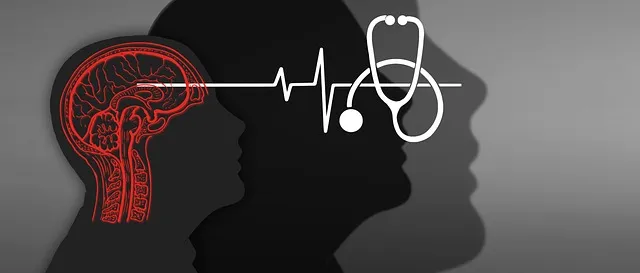Northglenn Kaiser Permanente prioritizes patient safety and well-being through comprehensive risk assessment, identifying internal and external hazards like staff stress and workplace conflicts. They implement best practices with workshops on stress management and conflict resolution, and their Community Outreach Program connects with local support systems. Mental health professionals provide specialized care, educate the community, and use evidence-based treatments. Robust risk management strategies, cultural competency training, and patient empowerment techniques enhance the effectiveness of Northglenn Kaiser Permanente mental health services, fostering a supportive environment for both patients and practitioners.
Mental health professionals play a crucial role in providing essential care, but they also face unique risks. This article explores comprehensive risk assessment strategies within the context of Northglenn Kaiser Permanente’s mental health services. We delve into understanding risk assessment fundamentals, highlighting the vital role these professionals play, and identifying potential hazards in clinical settings. Additionally, we discuss effective risk management, continuous improvement through training, and safe practice enhancements for optimal patient care.
- Understanding Risk Assessment in Mental Health Care
- The Role of Mental Health Professionals at Kaiser Permanente Northglenn
- Identifying Potential Risks and Hazards in Clinical Settings
- Implementing Effective Risk Management Strategies
- Continuous Improvement and Staff Training for Safe Practice
Understanding Risk Assessment in Mental Health Care

Risk assessment is a critical component of mental health care, enabling professionals to identify and mitigate potential hazards within their practice settings. For Northglenn Kaiser Permanente mental health services, this involves a comprehensive evaluation of various risks that may impact patient safety and well-being. By implementing robust risk assessment protocols, the organization ensures that it provides high-quality, secure care while adhering to industry standards and best practices.
This process involves identifying internal and external factors that could pose risks, such as staff stress levels, workplace conflicts, or inadequate resources. The Stress Management Workshops Organization within Kaiser Permanente plays a pivotal role in addressing these issues by offering workshops focused on stress management, conflict resolution techniques, and enhancing overall resilience among mental health professionals. Additionally, the Community Outreach Program Implementation acts as a safety net, fostering connections with local support systems to better serve patients’ needs.
The Role of Mental Health Professionals at Kaiser Permanente Northglenn

Mental Health professionals play a pivotal role at Kaiser Permanente Northglenn, where they are dedicated to providing comprehensive care for a diverse range of mental health conditions. The team offers specialized services tailored to meet the unique needs of the community, from individual therapy and group support sessions to innovative programs focused on public awareness campaigns and development of effective conflict resolution techniques. These professionals work tirelessly to foster an environment that promotes healing and growth, ensuring members receive evidence-based treatment for conditions such as depression, anxiety, trauma, and more.
Their expertise extends beyond clinical care, encompassing various aspects of mental well-being. They actively engage in educating the community about the importance of mental health through public awareness campaigns, targeting both young adults and at-risk populations. Furthermore, these professionals employ advanced conflict resolution techniques to help members navigate challenging interpersonal situations, enhancing their ability to manage mood and promote overall emotional resilience.
Identifying Potential Risks and Hazards in Clinical Settings

In clinical settings like Northglenn Kaiser Permanente mental health services, identifying potential risks and hazards is a critical first step in ensuring patient safety and well-being. These can manifest in various forms, from direct threats to psychological distress caused by demanding caseloads or complex interpersonal dynamics within the therapeutic environment. Mental health professionals must be attuned to both visible and invisible risks that might impact their own mental health as well as that of their clients. For instance, long working hours, high patient loads, and exposure to traumatic narratives can lead to burnout, compassion fatigue, and secondary trauma.
Moreover, in the diverse landscape of mental healthcare, where Cultural Sensitivity in Mental Healthcare Practice and Emotional Intelligence are paramount, professionals must also consider cultural barriers, power imbalances, and unique emotional needs. Effective communication strategies, such as active listening and clear, empathetic expression, can mitigate these risks by fostering trust, understanding, and connection. By acknowledging and proactively addressing these potential hazards, mental health service providers at Northglenn Kaiser Permanente can create a safer, more supportive environment for both patients and practitioners alike.
Implementing Effective Risk Management Strategies

Implementing effective risk management strategies is paramount for Northglenn Kaiser Permanente mental health services to ensure patient safety and well-being. These strategies must encompass a multi-faceted approach, tailored to address diverse risks that may arise in clinical settings. One key component involves enhancing the cultural competency training among healthcare providers, fostering an environment where cultural nuances are understood and respected, thereby promoting trust and open communication with diverse patient populations.
Additionally, equipping patients with coping skills development and inner strength development techniques empowers them to navigate challenging situations. Such initiatives can be incorporated into therapy sessions, group support programs, or community outreach activities. By integrating these strategies, Northglenn Kaiser Permanente can mitigate risks, improve clinical outcomes, and enhance the overall effectiveness of its mental health services.
Continuous Improvement and Staff Training for Safe Practice

At Northglenn Kaiser Permanente mental health services, continuous improvement and staff training are paramount for safe practice. Regular workshops and seminars focus on enhancing skills in stress management, emotional regulation, and healthcare provider cultural competency training. These initiatives ensure that professionals remain updated with best practices, fostering a supportive environment for both patients and practitioners.
Through ongoing education, staff gain valuable insights into managing complex cases, improving patient outcomes, and promoting a culture of resilience within the team. Such efforts not only strengthen the quality of care but also contribute to a healthier work environment, where professionals can thrive while providing exceptional mental health services in Northglenn.
Mental health professionals at Northglenn Kaiser Permanente play a vital role in providing safe, effective care through rigorous risk assessment practices. By identifying potential risks and hazards within clinical settings, implementing robust management strategies, and prioritizing continuous improvement, the organization ensures that patients receive high-quality services free from harm. The commitment to staff training underscores Kaiser Permanente Northglenn’s dedication to fostering a culture of safety in mental health care, ultimately enhancing patient outcomes and well-being.






